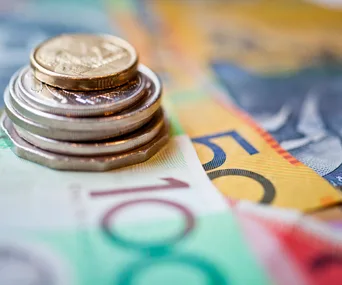
If you’re struggling to pay off your debt, you’re not alone, with more than 30 per cent of Australian households in over their head.
“A debt rut is when you have long-term debt you can’t pay off and it’s impacting your ability to manage your day-to-day finances, limiting your financial freedom and your ability to save,” says Kate Crous, Commonwealth Bank’s Executive General Manager of Everyday Banking.
“We’re talking specifically bad debt here; rolling credit card debt or overdue balances from buy-now-pay-later providers, as opposed to good debt like a home loan. Being in a debt rut can have a significant impact on your overall financial wellbeing, not to mention causing a lot of stress and anguish.”
The solution? Identify your bad debts, use effective strategies to start paying them off, change your spending habits so you don’t accumulate more bad debt in the future and start saving instead.
1. You don’t have to go it alone
Don’t beat yourself up about your debt. The important thing is that you’re ready to take on the challenge. For support, you can access, free and confidential financial counselling by calling the National Debt Helpline on 1800 007 007.
Kate says, “If you are struggling with debt, it’s recommended that you seek help immediately from someone who can help you put a debt-repayment strategy into place. Don’t forget to speak to your bank, too. Like CommBank, most banks have a financial hardship team that can provide tailored support and solutions to help you get back on your feet.”
2. Set that debt-wrecking ball in motion
You might be reluctant to start a budget, but once in place it can ease the stress of out-of-control finances.
Use your budget to allocate a percentage of your income to paying off your debts as soon as each pay lands in your account. An effective strategy is to set up an automated repayment plan.
3. Put your ‘rainy day’ savings to good use
If you’ve been saving for a rainy day and have managed to squirrel away a tidy sum, it could be just what you need to start working your way out of your debt rut.
It might not sound like a good money move to use your emergency funds to pay off credit card debt, but when you take into account how much interest you’re paying, it could be a smart decision.
3. Strip your credit cards
Pare your credit cards down to one. Keep it in your wallet for emergencies only and closely monitor your spending if you have to use it.
Many of us fall into the trap of making minimum repayments only, but paying the full balance owing as soon as possible will reduce the amount of interest you’re charged and help you clear the debt sooner.
5. Track your spending
“We’ve all been guilty of spending without paying enough attention to how much we’re spending or not knowing how much we have at our disposal, which can lead to unconscious overspending,” says Kate.
Try Lock, Block and Limit, a tool to keep you focused on your goal when your willpower lets you down. It allows you to set a limit per transaction on your credit card, so if you’re tempted to blow your budget on yet another set of towels, your card will be declined.
You probably didn’t need them anyway and you’ll be one step closer to becoming debt free.
6. Change your mindset
To dig yourself out of debt and start saving, your mindset needs to change. Learning to only spend money you have is your ticket to financial freedom.
Who doesn’t love buy-now-pay-later payment schemes like Afterpay? They’re not that bad if you use them wisely, but if you’re cash-strapped and in the habit of spending money you don’t have, the truth is these types of schemes are not going to help change your spending behaviour.
To help improve your financial wellbeing, please visit financiallyfitfemales.com.au. Proud partner, CommBank. Always consider your personal circumstances before acting on financial advice.



